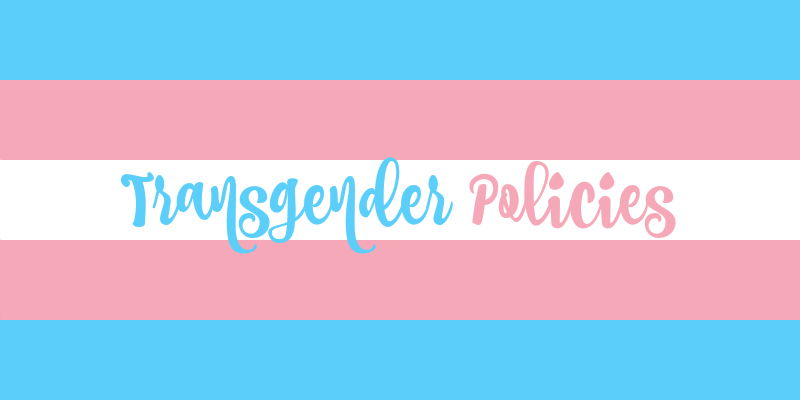By: Peter Sprigg – frc.org – June 14, 2019
One of the first major successes of the “gay liberation” movement in the United States was the American Psychiatric Association’s (APA’s) 1973 decision to remove homosexuality from its Diagnostic and Statistical Manual of Mental Disorders (the “DSM”). Early activists in the movement knew they would never persuade the public that they were normal as long as doctors said they were sick. The fact that the decision was more political than scientific complicates the history, but the goal was clear.
Like homosexuals, transgender activists have long been offended at the idea that trans people have a “disorder.” As a recent online article puts it, they believe “experiencing gender as different from the one assigned at birth is not a disorder or a disease – but rather a natural variation of human experience.”
Addressing that issue is more complicated for transgender activists than it was for homosexual ones, though. Homosexuals felt no “treatment” for their identity was necessary. However, those who identify as transgender often seek cross-sex hormones and gender reassignment surgery, to alter their bodies to more closely resemble those of the preferred sex.
They could pay for such procedures themselves, but that’s expensive. So to justify forcing third parties (insurance companies or taxpayers) to pay for these procedures, they need a diagnostic code from the DSM.
At one time, the APA defined merely being transgender—that is, experiencing “an incongruence between assigned sex (i.e., the sex recorded on one’s birth certificate) and gender identity”—as a “gender identity disorder.” In the DSM-5 (2013), the APA did away with the term “gender identity disorder,” and declared such “incongruence” was not a “disorder” at all. However, “the distress that may accompany the incongruence” could be classified as a disorder—now renamed “gender dysphoria.”
This was a partial fulfillment of transgender demands (“Gender incongruence is not a disorder!”), but it meant that if people obtained a “gender dysphoria” diagnosis in order to get hormones or surgery, they would still bear the “stigma” of having a “mental disorder.” Transgender activists and their allies continued to search for a new way of threading that needle.
Now, the World Health Organization (WHO) has approved an update to the “International Statistical Classification of Diseases and Related Health Problems” which will be known as the ICD-11. The ICD is a sort of international version of the DSM that is also widely used in the United States. The nonprofit advocacy organization Human Rights Watch (HRW) seems to have given the first detailed report on the implications of the new ICD for transgender health care.
Like the APA, the WHO has now decided to drop the term “gender identity disorder.” However, the new category that will replace it is—wait for it—“gender incongruence!” That’s right—the very thing that was declared not to be a disorder in the DSM will be the newly coined disorder in the ICD (confused yet?).
Why? Well, the new diagnosis will not be found in the “mental disorders” section of the ICD at all. Instead, an entirely new chapter has been added to the ICD: “Conditions Related to Sexual Health.” This allows the (financial) benefit of having a diagnosis without the “stigma” of having a “mental disorder.” But the term “dysphoria” inherently implies a mental condition; hence the re-purposing of the term “gender incongruence.”
Society certainly should have compassion for people who feel discomfort with their biological sex. It is certainly a painful struggle. However, the medical profession is moving more and more in the direction of offering expensive, body-altering surgery as the primary solution—instead of counseling to get at the roots of this discomfort and help to heal it.
The ICD changes are no surprise. New York psychiatrist Jack Drescher, who was involved in drafting both the DSM and ICD revisions, previewed them almost three years ago. But his article was revealing of the motives behind the changes:
WHO, a United Nations agency, has a human rights mission, and there is substantial evidence that the stigma associated with the intersection of transgender status and mental disorders contributes to precarious legal status, human rights violations, and barriers to appropriate health care for this population.
“Human rights?” “Stigma?” “Legal status?” It is hard to see what any of these have to do with accurate diagnosis of a health condition. Instead, they reveal that the changes in the ICD are motivated by a socio-political agenda—not a scientific or medical one. Money and politics, not compassion, are driving this transgender bus.
To see this article and others by Peter, click read more.
Source: Trans Activists: We’re Normal, But You Must Pay To Fix Us
 Listen Online
Listen Online Watch Online
Watch Online Find a Station in Your Area
Find a Station in Your Area









 Listen Now
Listen Now Watch Online
Watch Online
